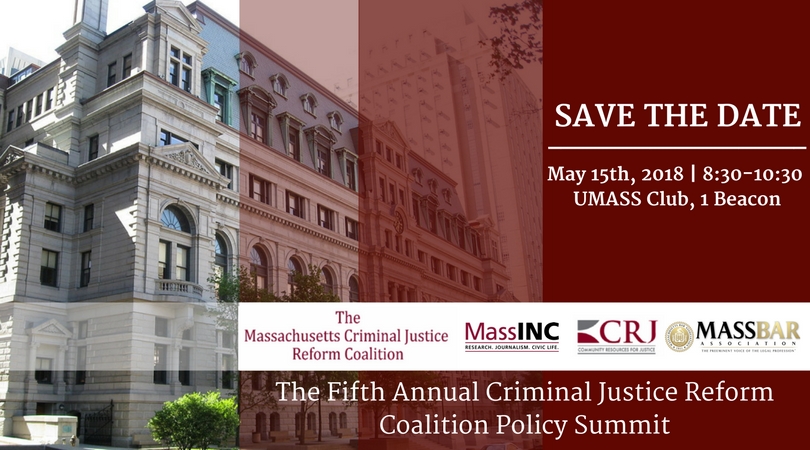
Reflecting Back on the Criminal Justice Data Revolution
A footnote to the story will be that Florida received far more attention at the time for passing a very similar measure that same month, but it was Massachusetts that put its brains to work and created the model, going from a state where district attorneys had to be sued just to release data on prosecutions, to a place where researchers could sift out patterns of bias by examining the race and ethnicity of defendants in different jurisdictions, their charges, and the terms of their plea deals.
When leaders reflect on the history and all of the progress, they’ll note that when the omnibus legislation with these data provisions emerged from conference committee in March 2018, less than half of Black residents in Boston had confidence in the state’s criminal justice system, only one-quarter believed the courts treated blacks and Latinos fairly, and fewer than one in five felt safe, according to a MassINC Polling Group-Hyams Foundation survey.
To be sure, there were many signs that the tide was turning for criminal justice reform in Massachusetts prior to this concerted effort to improve criminal justice data systems, from talk of diversion programs and the use of medication assisted treatment in correctional facilities, to an upturn in competitive DA races. However, in the end, data proved to be key to sustained progress, steadily moving us from a system “flying blind,” to a system that could conscientiously work to ensure safety and fairness for all.

Here in Massachusetts
The conference committee releases its report on the omnibus criminal justice reform legislation. The
Globe says Beacon Hill should pass the bill.
The New England Patriots take their quest for juvenile justice reform to the State House.
Prosecutors and local officials create a new pilot program to get drug purchasers into treatment and out of the criminal justice system
A Suffolk County second-chance program to divert juvenile offenders from the criminal justice system yields promising results.
The Globe editorial board decries a candidate for the Berkshire District Attorney’s office getting a leg up by serving on an interim basis. CommonWealth explains how it all went down.
Around the States
Hundreds gather in Memphis to march for criminal justice reform.
Citizens of Kentucky are in agreement on the need for criminal justice reform, but getting stakeholders to agree on what to do instead is proving a challenge.
Florida passes a bill that could start a criminal justice data revolution.
The Jets speak out on reforming the criminal justice system in New York.
Washington
Sen. Warren writes about the growing momentum for the Dignity for Incarcerated Women Act.
Formerly incarcerated artists receive grants to create artwork around criminal justice reform through “The Right to Return USA” fellowship.
The New York Times editorial board says President Trump is undoing criminal justice reform. A New York Times opinion piece debunks President Trump’s plan to pursue the death penalty in cases against drug traffickers.
President Trump’s appointee to the US Sentencing Commission is working to kill the body.
In the Media
The Boston Globe questions the efficacy of new policies limiting prison visitation in Massachusetts.
The Marshall Project looks at the impact of Court Watch NYC. (The ACLU of Massachusetts is holding court watch trainings around the state).
“How Incarceration Infects a Community,” The Atlantic explores the use of disease-based models to understand how prison-admission rates are linked to the health of a neighborhood.
WGBH examines the increasing number of suicides in county jails.
From the Researchers
A study of medication assisted treatment in Rhode Island jails finds exceptionally large benefits. WBUR has coverage.
A new paper from Raj Chetty ends the “Is it race or class?” debate about mass incarceration — black men raised in the top 1 percent are as likely to be incarcerated as white men raised in households earning about $36,000.
The Urban Institute releases case studies on justice reinvestment in high-incarceration-rate communities, along with polling to demonstrate widespread public support.
New research from Pew shows no relationship between the length of prison sentences for drug offenders and drug use.
A paper from the Executive Session at the Harvard Kennedy School advocates for going beyond measures of recidivism when evaluating the performance of community corrections.
